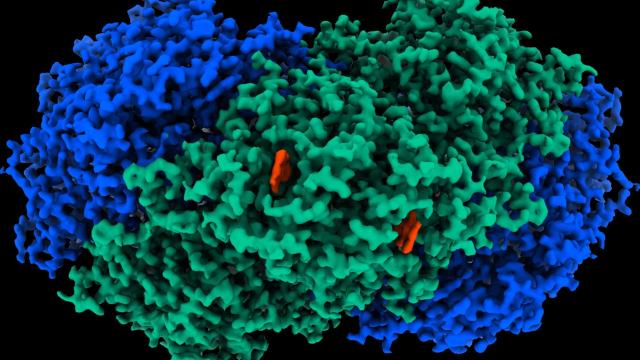We may some day be able to produce power from thin air — all thanks to bacteria living in dirt. Microbiologists at Monash University have identified an enzyme within a bacteria found in soil that can produce electricity using nothing but hydrogen from the atmosphere.
The research, published in Nature, involves an enzyme called Huc, which the researchers call a “hydrogen gas scavenger” in a press release. Huc is found within the bacteria Mycobacterium smegmatis, which uses the enzyme to grow in harsh environments like Antarctic soils, volcanic craters, and the deep ocean.
Huc is able to use hydrogen in the air to produce electrons as a byproduct of consuming the gas, like a natural battery. The team’s research shows that Huc can even generate electrons using levels of hydrogen below those found in the planet’s atmosphere.
“What we really wanted to do was isolate Huc from a bacterium able to scavenge atmospheric hydrogen,” lead author Rhys Grinter said in the press release. “That is a challenging thing to do, because often these environmental bacteria are hard to cultivate. So, we developed a series of new methods for, first, growing the bacteria, then breaking them open and then using chemistry to try and isolate this single component.”
Bacteria in the world’s soil consume more than 77 million tons of hydrogen each year and are an important part of maintaining Earth’s atmosphere; Grinter estimates that 60 per cent to 80 per cent of these bacteria could have enzymes like Huc, indicating a potential untapped wealth of electricity from biological sources. Huc is also a stable enzyme, meaning that it can be frozen or heated and still maintain its ability to generate electricity.
According to the researchers, Huc has a variety of different potential energy applications, but they are all relatively small scale, given the small amount of natural hydrogen Huc has access to in the air. For example, Huc could be used as a sensor for hydrogen; Huc’s electrical output would be a sign of the amount of hydrogen gas present.
Grinter and his colleagues, however, think Huc could be used to power small electronics someday. And Grinter said that if Huc were given larger sources of hydrogen to use, its power applications could significantly expand.
“While there’s a lot of work to do to make this happen, there’s a number of potential applications,” Grinter said in the release. “Once we produce Huc in sufficient quantities, the sky is quite literally the limit for using it to produce clean energy.”
